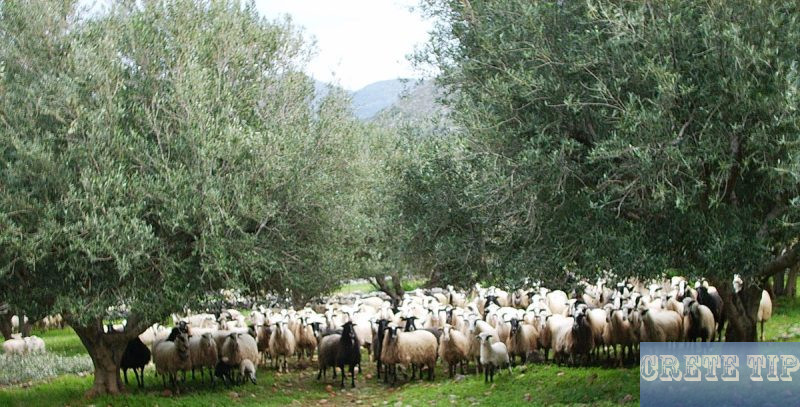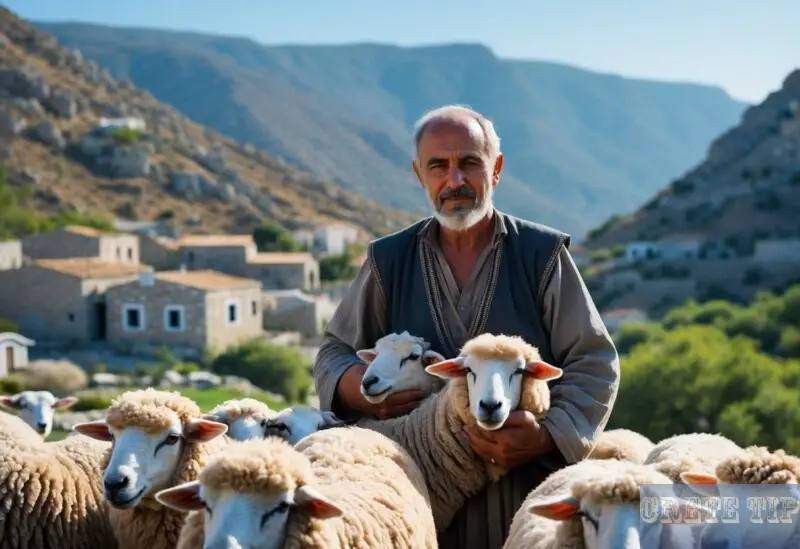The Greek agricultural sector’s been rocked by a major subsidy scandal involving illegal payments and false claims.

This case has exposed a tangled network that operated for years, pulling in both livestock farmers and land management practices.
The scheme reportedly involved fake livestock owners and manipulated grazing land reports. Significant financial losses followed in its wake.
Authorities are now digging into the roles of various parties, and national and European officials are paying close attention.
Hot Revelations on the Subsidy Scandal: The Political Paths, Agreements, and Electoral Mechanisms
This subsidy scandal has shone a light on political paths and backdoor dealings involving actors tied to the government.
The ministerial council is under the microscope, with several deals apparently skirting standard procedures.
Key elements include:
- Hidden agreements between political groups and interest networks
- Use of electoral mechanisms to influence subsidy distribution
- Creation of parallel structures (“backrooms”) managing funds unofficially
It’s a pattern—manipulation aimed at steering the process for the benefit of a select few. Makes you wonder about transparency and governance in these circles.
The OPEKEPE subsidy scandal is a web of remote grazing land claims and inflated livestock numbers. Sheep and goats were reported in places where, frankly, there weren’t any—just multiplying on paper for extra subsidy cash.
Officials took advantage by declaring lands and animals across different regions. Sometimes, allocations shifted from Peloponnese and Macedonia to Crete and Central Greece, slipped into ministerial orders with barely a glance at oversight.
The way certain agricultural professionals, including technical advisors, got involved is worrying. Some certified pastureland or livestock that simply didn’t exist, paving the way for illegal subsidy approvals.
Key Elements | Details |
|---|---|
Remote Pastures | Claimed but physically absent land plot certifications |
Livestock Counts | Fabricated numbers to maximise subsidy payments |
Regional Transfers | Shifting subsidies between regions via administrative decisions |
Technical Advisors (Τεχνικός Σύμβουλος) | Assisted in validating false data for subsidies |
Tax Identification Number (ΑΦΜ) | Used to register false claims linked to specific individuals or companies |
The whole thing was pretty sophisticated. Loopholes let fraudsters use real tax IDs (ΑΦΜ), even when the land use didn’t match the declarations at all.
Government responses? There have been calls to untangle these “Gordian knots” in subsidy controls. Political accountability, though, is still a bit of a black hole—some ministers claim they’re not really responsible, even after greenlighting things in the past.
- OPEKEPE: How the fake subsidy scams worked and the ongoing scheme
- OPEKEPE scandal revelations and the silent authority
- Crete boiling over with OPEKEPE issue; closed-door meetings with farmers and MPs
European prosecutors are now looking at how this kind of mismanagement and forgery went undetected for so long. It’s honestly baffling.
The scandal’s a messy mix of technical manipulation, bureaucratic blind spots, and—let’s be real—intentional misreporting. Official tax numbers and external consultants blur the trail, making it hard to pin down who’s really to blame or to claw back the money.
The “Mαγαζάκι” of OPEKEPE
The “μαγαζάκι” (small shop) is basically a network that’s been gaming the system inside OPEKEPE, Greece’s Payment and Control Agency for Guidance and Guarantee Community Aid. They pulled off false claims on grazing land ownership or leases, pocketing subsidies from the national reserve funded by the Common Agricultural Policy (CAP).
What made the “μαγαζάκι” tick?
- Exploitation of system gaps: No public ownership over the technical infrastructure meant data could be fiddled with.
- Use of technical loopholes: Rules let claimants attach public grazing land from anywhere in Greece to their animal numbers, activating subsidies.
- Eligibility rules: Even land without real livestock—just kept in good condition—could qualify for subsidies as “potentially available” for grazing.
Timeline and Activities
Period | Activity | Impact |
|---|---|---|
2019–2022 | False declarations on grazing land ownership | Illegal access to significant aid |
2023–2024 | Continuation of false claims | Ongoing abuse of subsidy system |
Scale and Involvement
It’s not just a handful of people, either.
- Beneficiaries: Plenty of individuals received subsidies based on made-up claims.
- Institutional tolerance: Five Ministers of Rural Development and six OPEKEPE presidents (since 2019) looked the other way—or worse.
- Digital system gaps: The “Greece 2.0” digital reform? Didn’t touch OPEKEPE, so oversight stayed weak.
Issues in Land Allocation and Subsidies
Honestly, the κατανομή γαιών (land allocation) process is a mess:
- Grazing land gets assigned to folks who might not even be in animal husbandry.
- Subsidies are handed out based on what’s declared, not what’s actually happening on the ground.
- The public system’s lack of control just opens the door for fake paperwork.
Investigations and Accountability
European prosecutors have been at this for almost eight months now.
- They’re looking at “phantom” livestock farmers and fake grazing grounds.
- Some rental agreements even list people who aren’t alive anymore. That’s wild.
- So far, domestic authorities haven’t pushed to recover the money paid out illegally.
- Brussels has handed rulings on responsibility back to the national level, so it’s a bit of a jurisdictional hot potato.
Summary Table: Actors and Roles
Actor | Role | Notes |
|---|---|---|
OPEKEPE | Managing and distributing subsidies | Weak control and infrastructure |
Beneficiary individuals | Claiming false grazing land rights | Receipt of illegal payments |
Ministers of Rural Development | Oversight and policy responsibility | Five since 2019, questioned |
OPEKEPE presidents | Organisational leadership | Six since 2019, implicated |
Investigation and legal action | Leading the probe |
This kind of environment let the “μαγαζάκι” keep running for years, quietly undermining any sense of fairness in Greece’s agricultural subsidy system.
The Miracles
Lately, people have been talking about these so-called “miracles” tied to how OPEKEPE manages agricultural subsidies. There’ve been odd stories, like livestock herds popping up out of thin air—one day in Crete, next in Western Macedonia.
It’s hard not to raise an eyebrow at a system funded by European money, meant to help new farmers, intermediaries, and banks, yet somehow keeps running into these strange incidents. The system’s persistent flaws have basically let questionable practices flourish.
The Prime Minister himself has admitted the current framework just isn’t working—bad practices, delays, and breaches are all out in the open. Despite some efforts to fix things, he said systemic problems are still hanging around, mostly untouched.
One big problem is these permanent features that make fair support allocation nearly impossible. Inefficiencies in the tech infrastructure and a clear lack of oversight have left plenty of room for shady behavior.
A former OPEKEPE president didn’t mince words, calling it a “big story” for 2022 and 2023. He pointed to a meltdown in the information system and several fraudulent schemes that slipped through the cracks.
Key Issues in OPEKEPE “Miracles” | Description |
|---|---|
Sudden livestock movements | Herds appear in unexpected regions without clear record |
Systemic bad practices | Persistent fraud and mismanagement recognised by officials |
Technological failure | Breakdown of information systems aiding misconduct |
European funding flows | Subsidies continue despite irregularities |
Slow or ineffective reforms | Six years of warnings went unheeded before changes attempted |
All this leaves a lot of open questions about who’s really watching over public agricultural funding. The mix of tech failures and old habits has created a mess that impacts farmers, taxpayers, and the whole reputation of the subsidy system.
Phone Calls by MPs for Farmers in Their Regions

Turns out, phone records show that MPs from all over the political spectrum—opposition, ruling party, you name it—have been making calls to steer subsidies toward farmers in their own backyards. It’s not just a rumor; especially in places like Crete, these calls have shaped funding decisions.
It goes beyond a little nudge here and there. There’s a sense of organized effort, almost like a club, to control who gets what in the subsidy game.
And that’s worrying. If you’re not in the right network, you might never see those grants.
Key points include:
- Multiple parties involved: MPs from both government and opposition parties appear to have participated.
- Regional focus: Priority was given to farmers within the MPs’ constituencies.
- Impact on subsidies: The process of awarding grants was manipulated through these communications.
- Investigations ongoing: The European Public Prosecutor’s Office has evidence including phone calls revealing this network.
- Effect on farmers: Legitimate farmers who were not connected through MPs may have been unfairly excluded.
This whole operation ties right into bigger investigations about how agricultural subsidies and European funding programs are being misused. It’s not just a political story—it directly affects livestock farmers and workers who depend on these funds to keep their businesses afloat.
Aspect | Details |
|---|---|
Parties involved | MPs from government and opposition |
Main regions affected | Crete and other agricultural areas |
Nature of interference | Directing subsidies via phone calls |
Investigating authority | European Public Prosecutor’s Office |
Impact | Potential bias against unaffiliated farmers |
It’s hard not to feel for the honest farmers who just want a fair shot. The system clearly needs tighter controls if it’s ever going to work for everyone.
The Incompetent Greek Judiciary
The Greek Supreme Court Prosecutor’s Office has basically thrown up its hands, saying it’s incompetent to investigate the latest subsidy scandal. According to them, only the European Public Prosecutor’s Office is allowed to handle cases involving crimes that hit the EU’s financial interests.
That’s a pretty unusual position. The Greek justice system is stepping aside, even with all these serious allegations about public funds swirling around.
- How can a national judicial authority ignore possible corruption within its own government and institutions?
- What happens when domestic officials and politicians are allegedly involved in bribery and fraud?
- Does this pass responsibility solely to European institutions, even though the events occurred in Greece?
Sure, the European Public Prosecutor’s Office does have the official mandate over EU financial crimes. But does that really mean local justice systems should just bow out entirely?
Key points about jurisdiction and responsibility
Aspect | Greek Judiciary Position | European Public Prosecutor’s Office Role |
|---|---|---|
Jurisdiction | Declares itself incompetent for crimes affecting EU funds | Sole authority over crimes impacting EU financial interests |
Responsibility | Limited involvement, defers to European body | Investigates, prosecutes, and refers cases to court |
Impact | National justice system seen as passive or detached | Expected to lead investigations across member states |
- The Greek Prosecutor’s Office hasn’t really addressed all the media reports about ministerial decisions that may have enabled fraudulent activities.
- No one seems to be looking into whether bribes were handed to public officials, business figures, or politicians.
- This approach basically dumps the whole problem onto European prosecutors, which could mean justice gets stuck in limbo.
Implications for transparency and accountability
Let’s be honest, this is the kind of thing that chips away at public trust in both national and European legal systems. People expect some sort of joint effort, right?
- Thorough investigations by Greek authorities.
- Close collaboration with European prosecutors.
- Clear communication with the public regarding progress and outcomes.
When action is slow or half-hearted, it just encourages more of the same—and the rule of law takes a hit.
In brief:
- The Greek judiciary refuses to take responsibility.
- The European Public Prosecutor’s Office is left as the only body entitled to investigate.
- This creates a gap in national oversight and reduces immediate accountability.
It’s a classic case of tension between national sovereignty and supranational legal power. If anything, it shows how badly we need real cooperation between Greek and European justice bodies—otherwise, serious financial crimes just fall through the cracks.
The AADE as a melting pot – It will not be an easy task
So, OPEKEPE’s being absorbed into the Independent Authority for Public Revenue (AADE) by early 2026. This isn’t just a “merge and move on” deal—every department from the chaotic OPEKEPE will be folded into its AADE counterpart, basically erasing the old organization and spreading its duties across AADE.
AADE’s even planning to appoint a deputy head just for agricultural subsidy issues. That says a lot about how seriously they’re taking this mess.
There’s talk of big changes in how farmers file claims. The current “Declaration Reception Centres” haven’t worked out, and they’re probably on the chopping block.
One idea is to have accountants handle declarations for farmers, but honestly, that’s still up in the air.
Key Challenges for AADE
Challenge | Description | Notes |
|---|---|---|
Verification of “fake” grazing land | Cross-referencing grazing land declarations to prevent subsidy abuse | Use of land registry data and other available resources |
Counting livestock numbers accurately | Many herds seem to multiply on paper, raising subsidy claim issues | Effective animal tagging and tracking systems are needed |
Animal tagging system | Ensuring each animal is properly tagged to avoid false claims | No current clear solution; a critical unresolved problem |
Possible Improvements Under AADE
- Introduction of a new IT system to handle agricultural subsidy claims more smoothly.
- Transition away from old methods towards digital, streamlined services.
- More rigorous and data-driven cross-checks and audits to reduce fraud.
Let’s not sugarcoat it—the merger’s going to be a bumpy ride. AADE will have to get creative and enforce real controls if they want to get this subsidy system back on track. It’ll take solid planning and, honestly, a bit of nerve to restore any kind of trust or efficiency here.
Continuous Revelations of Documents
Recent disclosures have really shined a light on some oddities in agricultural subsidies. A 2019 document, signed by then Minister of Rural Development Mákis Vorídis, let livestock farmers from places like Crete and Thessaly move to other regions and claim subsidies for grazing lands there.
This move sparked a lot of talk about whether pastures were being properly allocated and monitored. It’s tough not to wonder who was actually keeping track.
Other documents point to a pattern of letting farmers claim subsidies without any real tie between where their animals actually were and the land listed in the paperwork. Under Minister Vaggelis Apostolou, a decision made it possible to allocate grazing land without checking animal locations at all.
What was supposed to be a stopgap in 2014 just stuck around, quietly becoming the norm. That’s how you end up with fake declarations and, honestly, a mess.
In 2019, yet another document about land allocation issues landed on Vorídis’ desk. Despite this, Vorídis claims he wasn’t responsible for OPSEPEE’s inspections, which just muddied things further.
That contradiction only fueled more doubts about who was really in charge. It’s not exactly a recipe for trust.
Then in 2021, the OPSEPEE director, Fánis Papás, canceled an international IT tender. Just over two months later, he resigned, tossing more fuel on the fire as the scandal grew.
Year | Document Subject | Key Individuals | Notable Details |
|---|---|---|---|
2014 | Temporary grazing land allocation | Ministry of Rural Development | Initially temporary, method later became permanent |
2019 | Grazing land redistribution | Mákis Vorídis, livestock farmers | Allowed relocation and subsidy claims outside real locations |
2019 | Land allocation correspondence | Mákis Vorídis | Minister denies responsibility for OPSEPEE controls |
2021 | Cancellation of IT tender | Fánis Papás | Director resigned shortly after cancelling tender |
More and more documents keep surfacing, and the complaints just pile up. Here’s what keeps coming up:
- False declarations by livestock farmers—claims for grazing areas where their animals never set hoof.
- Allegations of political interference in how subsidies get handed out.
- Administrative irregularities and a shocking lack of controls inside OPSEPEE.
- Delayed or ineffective investigations into subsidy fraud.
The way subsidies have been approved, without checking if animals are actually present, just chips away at the whole support system’s credibility. You can see why political fights break out, with everyone pointing fingers.
Attempts to tighten monitoring have lagged or gotten sidestepped by bureaucratic decisions. Scrapping key IT tenders—meant to improve oversight—only made things worse.
Issue | Impact |
|---|---|
False declarations | Misuse of funds and unjust enrichment |
Political interference | Undermines trust and distorts fair subsidy distribution |
Weak control systems | Inefficient fraud detection and prevention |
Administrative actions | Delays in reform and lack of accountability |
There’s no shortage of leaked or published papers painting a pretty bleak picture of how agricultural subsidies have been handled. Grievances—καταγγελίες—keep rolling in, all calling for transparency and actual reform.
The evidence shows a system where claims rest on shaky or outright false declarations—ψευδείς δηλώσεις. That’s not just a paperwork problem; it’s money lost and public trust eroded.
Honestly, it’s all still unfolding. As more documents come out, there’s a sense that the rot could run even deeper. A thorough audit and some real policy changes? At this point, that’s probably the bare minimum.
The “Improper Relations,” the “Godparents,” and the Director under Indictment
The agricultural development sector—supposed to be about food security—got twisted into a tool for political gain. In places like Crete, some ministers used EU subsidies to shore up their own support, leaving a lot of farmers out in the cold.
During the current government, a web of “godparent” relationships and tight bonds with companies and union heads really took root. These ties often trumped any sense of fair or transparent management.
Officials who didn’t play along—like Spilios Livanos, Giorgos Georgantas, and the former payment agency president, Mr. Varras—were shown the door.
Issue | Effect | Key Individuals |
|---|---|---|
Misuse of subsidy payments | Certain groups gained unfair financial advantages | Ministers with political ambitions |
Lack of transparency in appointments | Dismissal of resisting officials | Spilios Livanos, Giorgos Georgantas, Mr. Varras |
Close ties with companies and unions | Strengthened control by political allies | Agricultural unions, private businesses |
One particularly controversial e-mail went from an OPEKEPE employee to the director, raising alarm bells about possible irregularities. The director herself was under indictment but still got assigned to the Recovery Fund.
Meanwhile, the ex-president of OPEKEPE, who froze almost 3,100 VAT numbers during a subsidy probe, was quietly ousted. His actions made people wonder if subsidies were being paid for real livestock or just numbers on a page.
Even ministers in the spotlight faced criticism but somehow dodged any real investigation. It’s hard not to think that the aim was to keep inquiries from digging too deep and unearthing something explosive.
There’s also the matter of how technical advisers at OPEKEPE got their jobs. Ministers skipped public tenders again and again, letting some advisers stick around for years without competition or much justification.
- No one really told the Prime Minister why key officials got the boot.
- Ministers and their advisers kept quiet about the deeper problems in subsidy management.
- Certain advisers and companies just kept their positions, unchallenged.
- Anyone who stood up to the system got pushed out, not protected.
The structural weaknesses and violations that keep cropping up show just how deep these problems run. Public funds get misused, fair access is undermined, and trust in institutions takes another hit.
This whole environment made it easy for politics and personal interests to trump the good of the farming community. It’s a mess that’s left agricultural policy looking anything but credible.
- Politicisation of agricultural development.
- Improper relationships steering subsidy decisions.
- Ousting of officials who tried to resist.
- Failure to inform or act at the top levels.
- Closed-door hiring for technical advisers.
- Senior officials under indictment but facing little real consequence.
Put all that together, and it’s clear that rule-bending is the norm, not the exception. If fairness and efficiency are ever coming back to this sector, it’s going to take real transparency and oversight—something that’s been missing for a while.
Rewarded with Secondment to the Recovery Fund
A director at OPEKEPE, under indictment along with the ex-president for destroying key files, was seconded to the Recovery Fund. The timing? Suspicious, to say the least. Their court date is now set for 20 October 2025 after being pushed back.
To some, this transfer looked less like a neutral move and more like a reward for her actions at OPEKEPE. Even with legal trouble looming, she landed a spot at the Recovery Fund, which manages a lot of EU money for Greece’s recovery.
- The director was linked to missing and destroyed documents.
- Her transfer happened smack in the middle of ongoing investigations.
- The whole thing’s attracted plenty of public and political heat, raising big questions about OPEKEPE’s leadership.
This didn’t go unnoticed by officials like Makis Voridis, Minister of Rural Development and Food. He’s tried to talk up integrity in the management of agricultural bodies, especially around subsidy and EU fund distribution.
Event | Date | Notes |
|---|---|---|
Case postponement | Before Oct 2025 | Trial rescheduled for 20 October 2025 |
Secondment to Recovery Fund | Early 2025 | Seen as a notable internal decision |
Public and political response | Ongoing | Questions rise on management and oversight |
The Recovery Fund is a big deal—handling billions for post-pandemic recovery, including rural projects. Putting someone with this baggage in charge? That’s still sparking debate about transparency and oversight.
Critical Dates
19 October 2011 – 19 July 2020
Led the Directorate of Direct Subsidies and Market at OPEKEPE.20 July 2020 – 19 May 2022
Served as head of the Directorate of Technical Inspections at OPEKEPE.1 September 2022
Concluded service as a regular employee in the Inspectorate and Secondary Controls Department within OPEKEPE’s Internal Audit Directorate.20 May 2022 – Date of Secondment
Worked in the Department of Supervision of Bodies and Certification under Internal Audit before being seconded to the Ministry of Finance.
Notes on delays and transitions
There were notable delays during transitions between departments and roles. These delays affected the timing of internal controls and audits, which definitely didn’t help accountability challenges within OPEKEPE.
The secondment to the Ministry of Finance marked a significant change in internal oversight responsibilities.
Date Range | Role | Department |
|---|---|---|
19/10/2011 – 19/07/2020 | Head | Directorate of Direct Subsidies and Market |
20/07/2020 – 19/05/2022 | Head | Directorate of Technical Inspections |
20/05/2022 – 01/09/2022 | Staff Member | Department of Supervision and Certification |
Unnatural Increases

Between 2018 and 2019, certain irregularities in subsidy applications became pretty obvious, especially when it came to the national reserve and the certification process.
Despite administrative changes and supposed controls, some regions showed almost bizarre growth in declared agricultural land.
In 2018, they introduced the requirement to include the Unique Parcel Identification Code (UPIC) in subsidy applications. But then it became optional, and there weren’t checks on how the national reserve was being used.
One region, for example, saw its application rate jump from 17% to 38% that year. That’s a wild surge compared to the rest.
In 2019, official instructions about administrative audits of the national reserve were finally issued. Even so, Crete still recorded some pretty unnatural increases in claimed hectares.
It’s hard not to wonder if these audits were ever properly enforced or if they just missed the mark entirely.
Year | Region | Application Increase (%) | Note |
|---|---|---|---|
2018 | Various | 17% → 38% | No checks on national reserve |
2019 | Crete | Significant increase | Despite administrative controls and certification |
The certification process was supposed to validate land declarations, but it clearly didn’t stop these anomalies.
There are some real gaps in the control system, which just left the door open for inflated claims on subsidies.
- Land declared without proper verification (or, honestly, any real scrutiny)
- Regions with weirdly big jumps in declared hectares
- Possible exploitation of loopholes or fuzzy regulations
It’s obvious there’s a need for stronger monitoring and clearer enforcement when it comes to land declarations and subsidy certification.
Explosion of Fraud
In 2020, spending on agricultural subsidies shot up, hitting 45 million euros. This happened under the Technical Controls Department’s watch.
Efforts to limit fraud—like banning the transfer of rights and voiding fields with wild olive cultivation in unsuitable areas—were put in place, but only after the national reserve had already been handed out.
Crete, interestingly, received 67% of the 2020 reserve.
The next year, 2021, requests for the national reserve spiked again. The Agriculture Minister, Georgantas, was under pressure to pay applicants.
He responded by sending a document to OPPEKEPE, the payments agency, freezing 2,000 taxpayer numbers (AFM). These numbers stayed frozen until 2024, and then, oddly enough, got paid as if nothing had happened.
Here’s a quick breakdown of how things escalated:
Year | Event | Details |
|---|---|---|
2020 | Spending spike | Payments rose to 45M euros during Technical Controls oversight |
2020 | Interventions delayed | Transfer bans and crop nullifications happened post-distribution |
2020 | Crete’s share | Crete was allotted 67% of the national reserve |
2021 | Record applications | Huge rise in national reserve requests |
2021-2024 | AFM freezes | 2,000 taxpayer numbers frozen, paid late |
The freeze of those 2,000 AFM numbers is telling. It’s a sign there were attempts to get a handle on things, but it’s also a bit unsettling that irregular payments just kept happening for years.
This wasn’t just a slip-up. It was a coordinated operation that siphoned off money meant for real farmers, and the structure of it all let the misuse keep rolling along.
- This went on for years—systematic and pretty well-organised
- Manipulation of national reserve allocations was central
- Frozen taxpayer numbers delayed detection
- Regulatory responses were just too slow or too late
With the sums involved, no wonder multiple agencies started paying attention. Farmers lost out, and trust in the system took a serious hit.
- More checks were finally introduced after the 2020 blow-up
- Fields with wild olive trees started getting more scrutiny
- Applications for the reserve got closer oversight to avoid another payment mess
But honestly, the delayed response meant a lot of damage was done before anyone really tightened controls.
This whole episode shows just how tough it is to manage big subsidy programs. The rules are complicated, local quirks get exploited, and by the time anyone reacts, the money’s long gone.
Only One On-Site Inspection in Kythnos
Just one on-site inspection actually took place in Kythnos during the period in question. This happened while Grigoris Varas was at the helm.
After the inspection, the case landed in court. The supposed beneficiaries and owners were initially convicted.
Oddly enough, the alleged owner at the center of this whole mess was, from 2020 onward, apparently the Director of Technical Controls.
By 2021, the paying agency had gotten its hands on land registry data. Yet, nothing really happened with it.
The Legal Service stepped in, insisting that temporary land registry tables shouldn’t count for much. The administration went along with this, so the data basically got tossed aside.
Meanwhile, the Director of Technical Controls rolled out the fifth amendment to the technical inspection circular. This tweak changed Varas’s original circular, which had required pretty solid proof of ownership.
The amendment more or less killed off any real verification. Not exactly inspiring confidence.
A recent MEGA news report brought to light some eyebrow-raising internal emails between a government employee and that same Director of Technical Controls. The emails show the agency was figuring out ways to throw the Economic Police off the scent during their investigation.
In those exchanges, the employee actually mocked the whole investigation. She talked about prepping a document “with all the necessary extras” and even mentioned “some extras for the controls that I thought were successful,” which sounds a lot like adding bogus info to the files.
At that point, the Economic Police were asking for documents as part of their probe into the agency’s operations. This came after evidence had been sent to the prosecutor about some pretty suspicious activities.
Still, the agency’s approach to the inspection and data was, frankly, a mess.
Key Points | Details |
|---|---|
Location of on-site inspection | Kythnos |
Time of inspection | During Grigoris Varas’s leadership |
Outcome of inspection | Case forwarded to court; preliminary convictions issued |
Problem with land registry data after 2021 | Legal Service rejected temporary records; data ignored |
Amendment of inspection rules | Technical inspection circular changed to reduce checks |
Internal email evidence | Emails showed deliberate attempts to mislead Economic Police |
Tone of emails | Mocking, planning false information for the investigation |







